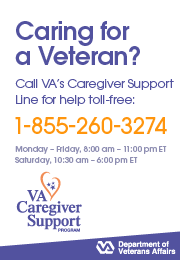RESCUE
HOME |
RESCUE
Fact Sheet Library
MANAGING FINANCIAL & LEGAL ISSUES
Getting Help with Legal Matters
Everyone should have their legal matters in order. Your stroke survivor could lose the ability to make decisions. Careful planning will make sure your loved one’s wishes are followed.
What Do You Need to Know?
Plan ahead. Talk to your stroke survivor about legal matters early. Your loved one must have mental capacity to sign legal documents. Mental capacity means they can understand and make decisions.
You may need legal advice on the following:
- Advance planning, such as a living will.
- Public benefits. Learn more about getting help paying for community services.
- Long-term care and other housing. Learn more about long-term care housing choices.
- Abuse and neglect.
Where Can You Find Help with Legal Matters?
If possible, use an elder law attorney or attorney familiar with disability. Contact the National Academy of Elder Law Attorneys. Your local Area Agency on Aging (AAA) can refer you to an attorney. Some AAAs provide legal services for seniors. Find your local AAA on the Eldercare Locator. The More Resources section has contact information for these resources.
Community legal aid agencies offer help at low or no cost. The bar association in your area can refer you to an attorney. First visits often include a small fee. Look in your local phone book to find these agencies.
What Legal Documents Do You Need?
The documents below will protect your loved one’s rights:
Durable Power of Attorney (POA)
Durable power of attorney (POA) gives someone the right to act for another person. This could include making financial or legal decisions. It could include writing checks to pay for bills. It stays in place if your loved one becomes unable to make decisions. Give the VA a copy of the POA for their records.
Durable Power of Attorney for Health Care
Durable power of attorney for health care names a person to make healthcare decisions for someone who cannot. For example, the person could decide to continue or stop a feeding tube. The person is usually a family member or close friend. They may be called a healthcare surrogate or healthcare proxy.
HIPAA
HIPAA (Health Insurance Portability and Accountability Act) provides privacy for a person’s medical records. Your loved one should sign a HIPAA release. The release says who can see your loved one’s medical records.
Living Will
Living will states in advance a person’s wishes about medical care. Your loved one can say what medical treatments should be done. This may include a feeding tube or breathing machine. The document often allows naming someone to make healthcare decisions.
DNR
DNR stands for Do Not Resuscitate order. A DNR states not to revive a person who stops breathing.
Will
A will states how a person wants assets (property and belongings) distributed at death. A will lists who is in charge of a person’s assets. A will can include other things, such as gifts or funeral wishes.
What Are Some Other Legal Matters You Should Know About?
Guardianship
In a guardianship, the court appoints someone to make decisions when a person no longer can. The court also decides when a person cannot make decisions. The family may need this if other advance planning documents are not in place. This process can take a long time.
Living Trust
A living trust gives instructions about a person’s estate. An estate includes a person’s property and funds. The trust appoints someone to handle the estate when the person becomes unable. Trust instructions state how assets should be distributed at death. A trust can avoid the expense and delay of probate. Probate is when the courts say that a will is valid.
Estate Planning
Estate planning is developing a plan for others to manage assets if a person dies or becomes unable. Estate planning can include writing wills and naming beneficiaries. A beneficiary is someone who receives benefits or assets. Estate planning can include creating trusts and making funeral plans.
Joint Accounts
Joint accounts allow another person to handle someone’s affairs. These can be checking, investment or other accounts. Contact an attorney before setting up a joint account.
Helpful Tips
- Educate yourself on legal matters.
- Keep important legal documents up to date. Review them often to make needed changes.
- Store your loved one’s legal documents in a safe place. Tell someone you trust where you put these documents.
Remember
- Take care of legal matters early. Discuss legal matters while your loved one is able to think clearly. Your loved one must be mentally capable to sign legal documents.
- Talk to an attorney. If possible, find an elder law attorney or attorney familiar with disability.
More Resources
The following resources are related to this fact sheet only. View a full list of the resources from all RESCUE fact
sheets.
*Link Disclaimer: Links to information
and Web sites outside of the Department of Veterans Affairs do not
indicate an endorsement of products or services offered by the sites.
In addition, these sites may have privacy and security policies
that are inconsistent with those of VA.
Download
a free version of Adobe Reader* to view PDF files. |
 References: Houts, P.S. (Ed.). (2004). ElderCare At Home, Advance Directives. (2nd Ed.). New York, NY: The AGS Foundation for Health in Aging; Caring.Com. (2009). How a Conservatorship, or Adult Guardianship, Works. Retrieved February 27, 2009, from: http://www.caring.com/articles/guardianship-of-adult*; Caring.Com (2009) Protect Your Estate with a Will. Retrieved February 26, 2009, from: http://pacaregiver.caring.com/articles/protect-your-estate-with-a-will*; New York Life, MainStay Investments (2009). Role Reversal: Your Aging Parents and You. Retrieved March 4, 2009, from http://www.nylim.com/portal/site/MainStay/menuitem.3fee00be62dbf2b06d3ce939da48c1ca/?vgnextoid=de6d54841a92c110VgnVCM100000ac841cacRCRD*; National Institute on Aging. (2009). Making Legal Arrangements. Retrieved February 19, 2009, from: http://www.dementiacarecentral.com/caregiverinfo/managing/legal*; Alzheimer’s Disease Education & Referral Center. (2008). Legal and Financial Planning for People with Alzheimer’s Disease Fact Sheet. National Institute on Aging, NIH Publication No. 08-6422, June 2008. Retrieved October 30, 2008.

  These materials were created for the project:
Web-Based Informational Materials for Caregivers of Veterans Post-Stroke
Project Number SDP 06-327 funded by VA HSR&D Quality Enhancement Research Initiative (QUERI); Supported by the
Stroke QUERI
Visit the Stroke QUERI Website
|






















